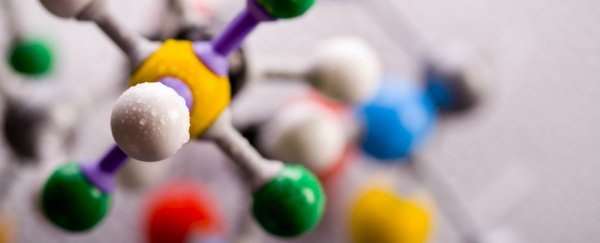Researchers have created the strongest organic acid ever – and the team thinks it could revolutionise how we analyse proteins.
The strongest acid on record is fluoroantimonic acid – it's known as a superacid, meaning it has an acidity greater than completely pure sulphuric acid.
To give you an indication of how potent that is, sulphuric acid has a Hammett acidity function of -12, fluoroantimonic acid has a value of −31.3 and this new acid tops both.
So how does it work?
The researchers, from the University of New South Wales (UNSW) in Australia, are using highly charged protein ions (HCPI) to add protons to elements and molecules that can't form bonds (think noble gases on the periodic table).
"We've discovered how to form protein ions in really highly charged states, so reactive that they can transfer a proton to molecules and atoms that are normally considered inert, like argon and nitrogen," said one of the team, Alex Donald.
The researchers took protein ions, and subjected them to a low-pressure ion source – creating HCPIs capable of adding protons to even the toughest molecules – therefore creating an extremely potent acid.
But what's really exciting about this discovery is what it actually means for the field of chemistry.
Currently, when analysing proteins, scientists usually use a technique called mass spectrometry – where atoms or molecules are ionised and then split by a magnetic field according to their mass and positive charge.
This allows researchers to discover what different complex samples are made of, as well as investigating the mass of simpler samples.
However, protein samples used in a mass spectrometer have to be under 10 kilodaltons, which is frustrating when you want to measure larger proteins.
Because the new HCPIs are so successful at adding protons, the researchers think that sequences of larger proteins could be rapidly and completely characterised using the new acid.
The team says that they are now working on improving mass spectrometry even more, through increasing the speed and protein sequence coverage of the technology.
"If you understand how something works, in principal, you should be able to make it work better," says Donald.
The research was published in Angewandte Chemie International Edition.
UNSW Science is a sponsor of ScienceAlert. Find out more about their world-leading research.
